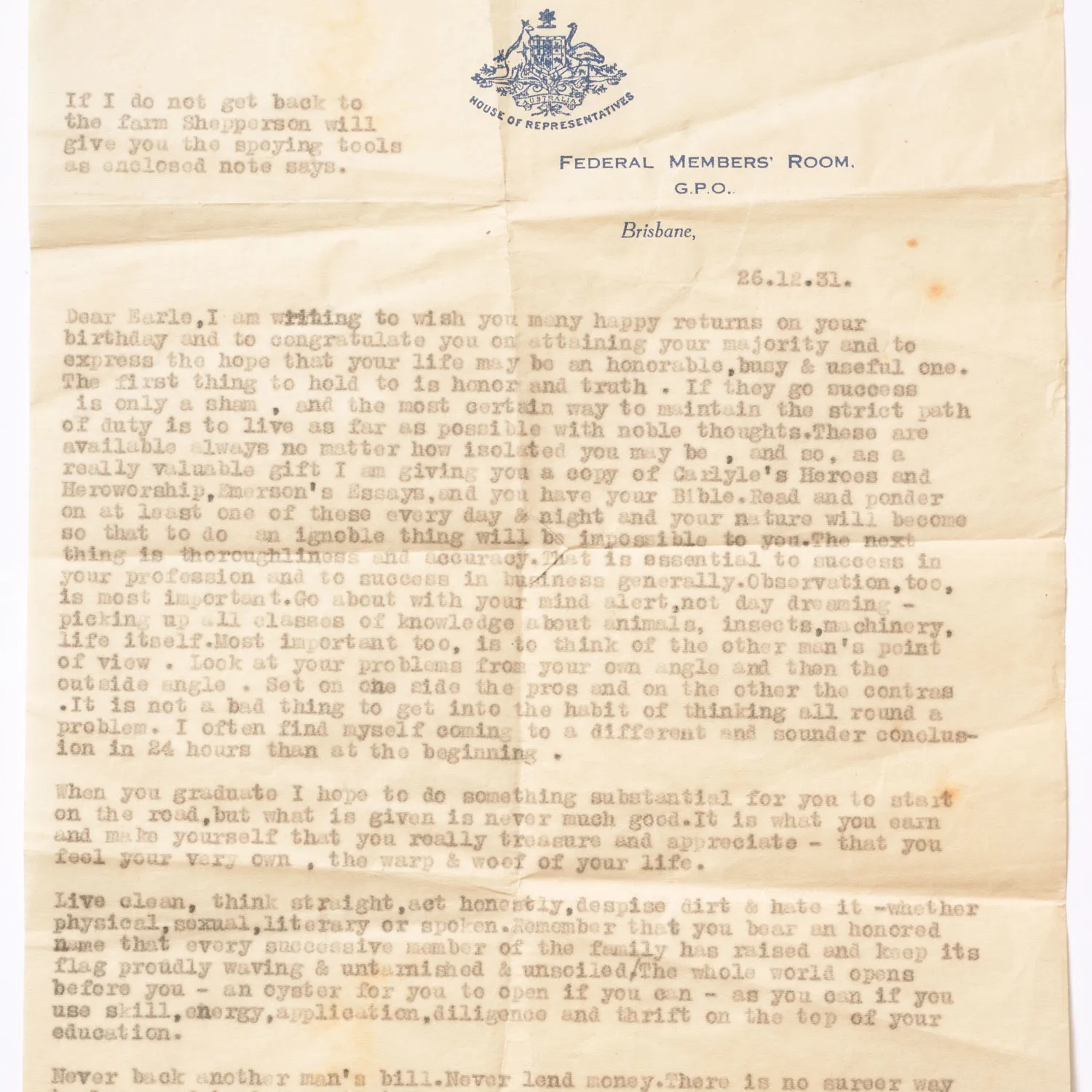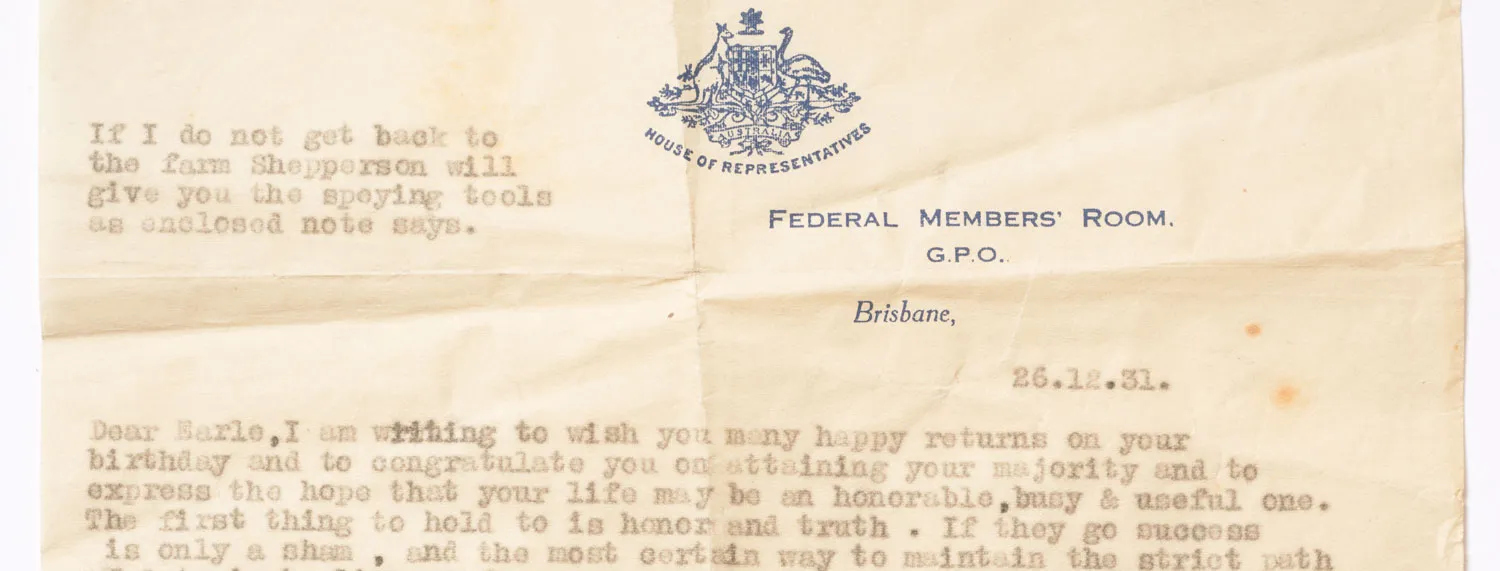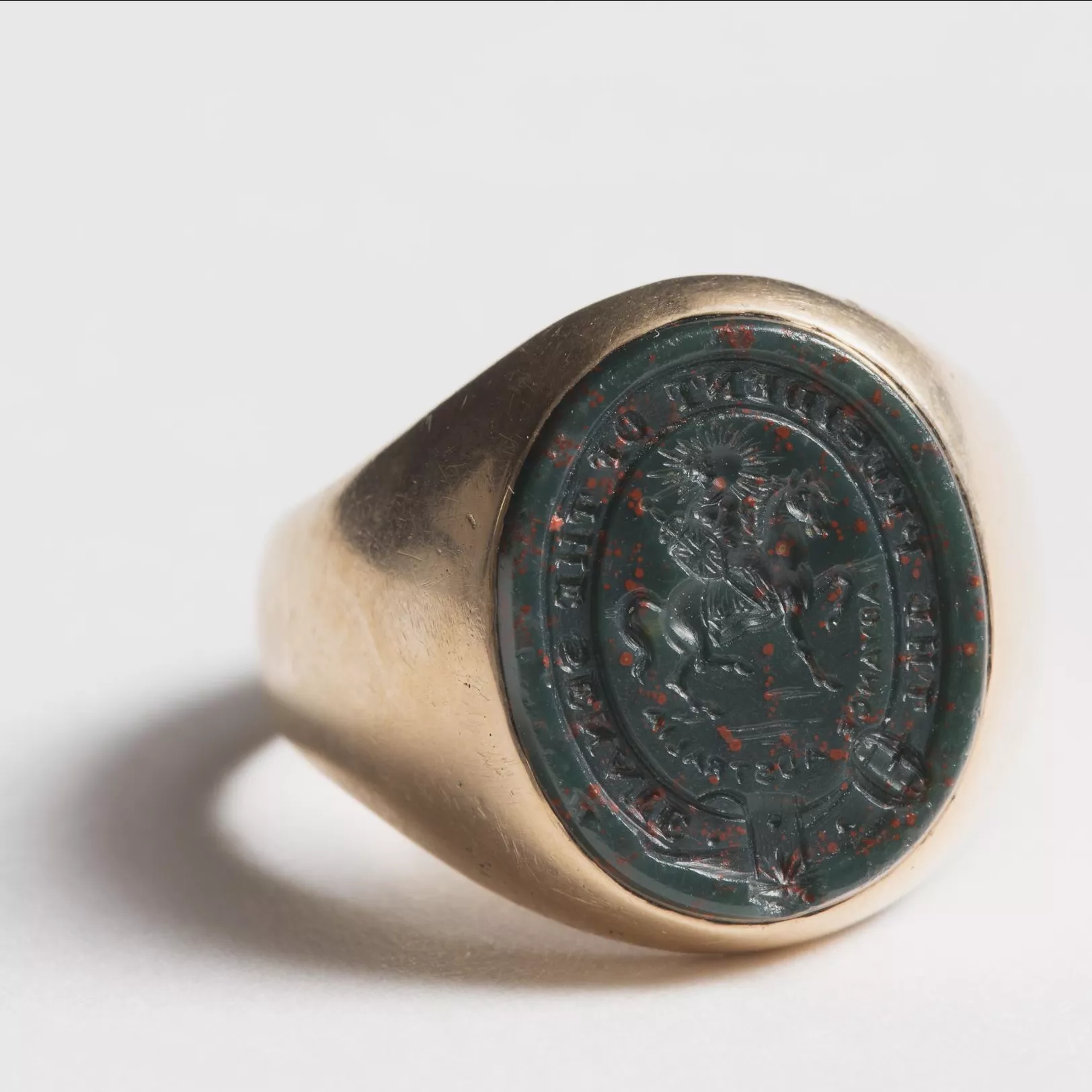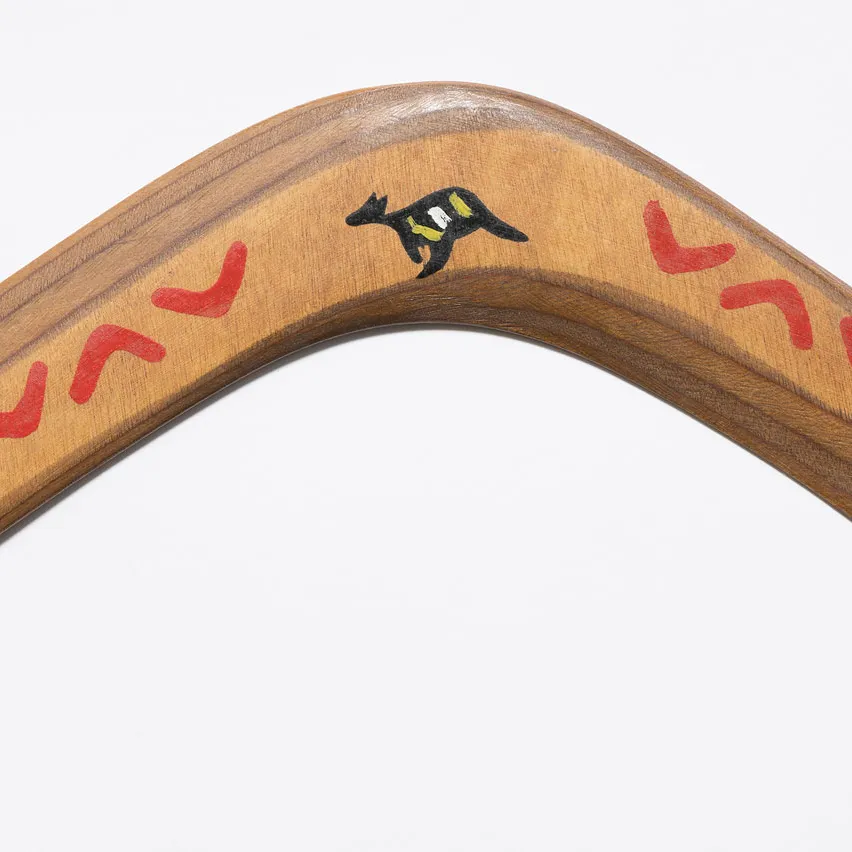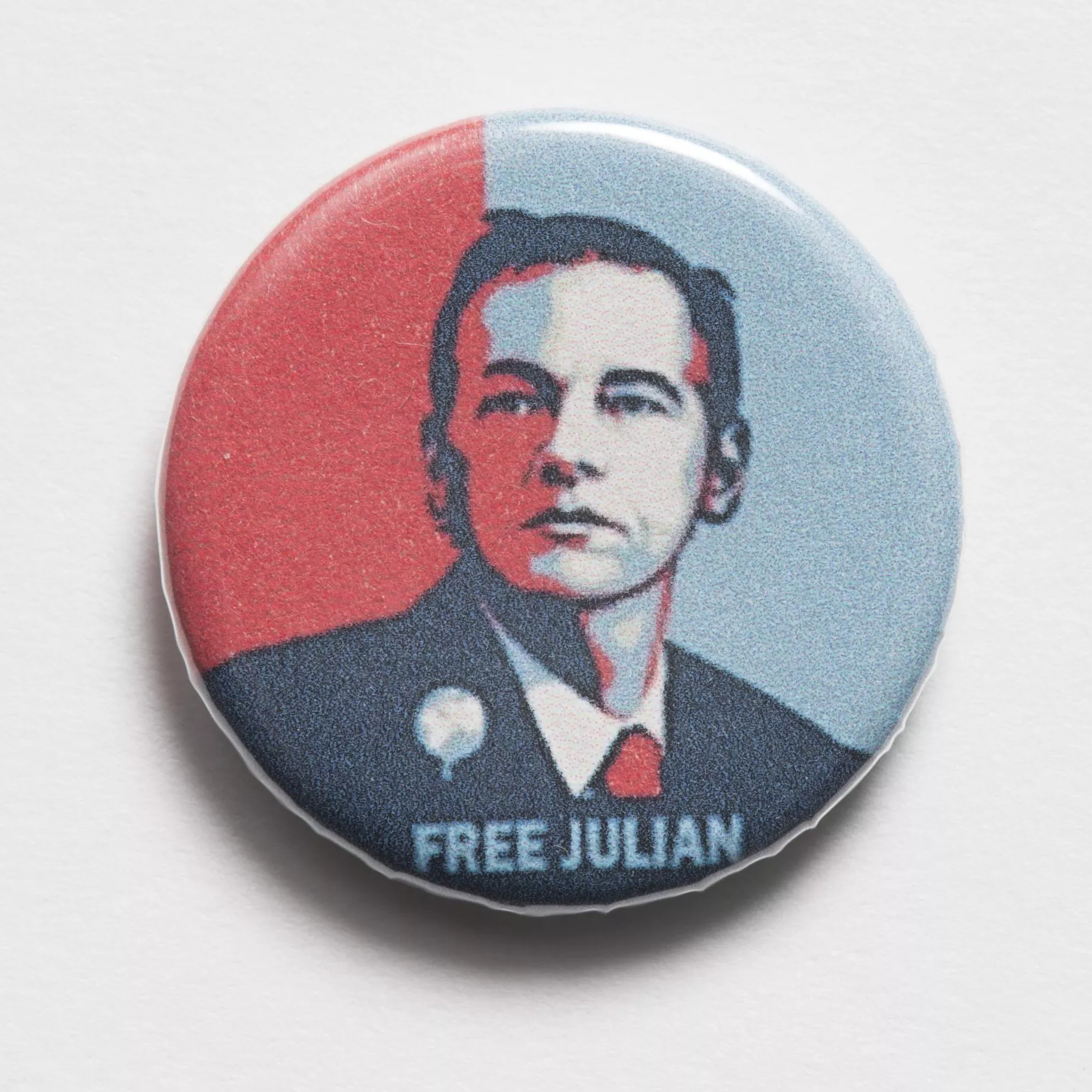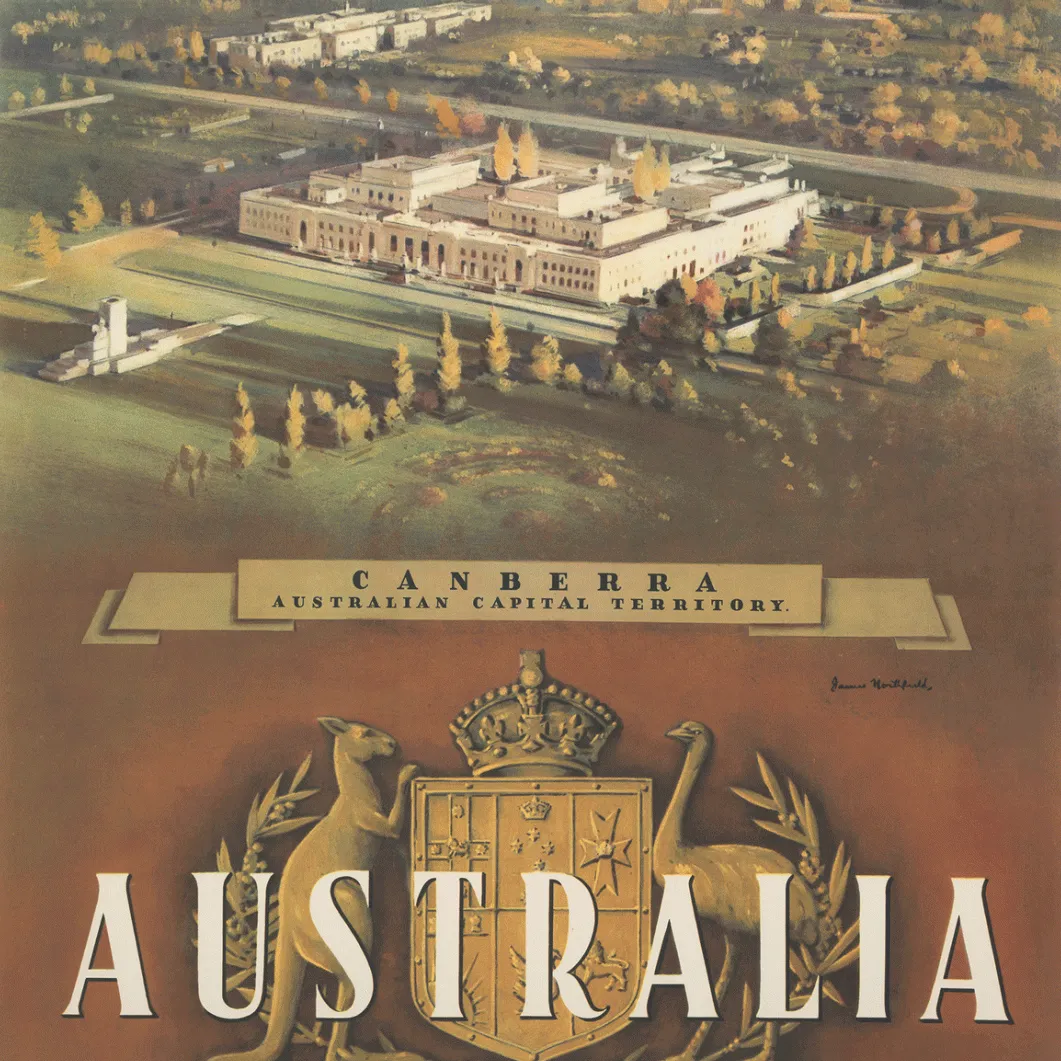Letter from Earle Page to his son on his 21st birthday
Fatherly advice from a future prime minister.
This letter, typed in 1931 on official House of Representatives letterhead from the Brisbane office and now thin and yellow with age, was sent by Earle Page to his son, Earle Jr, on the occasion of his 21st birthday. The first page is carefully packed with closely typed words, and both pages have been folded carefully together three times.
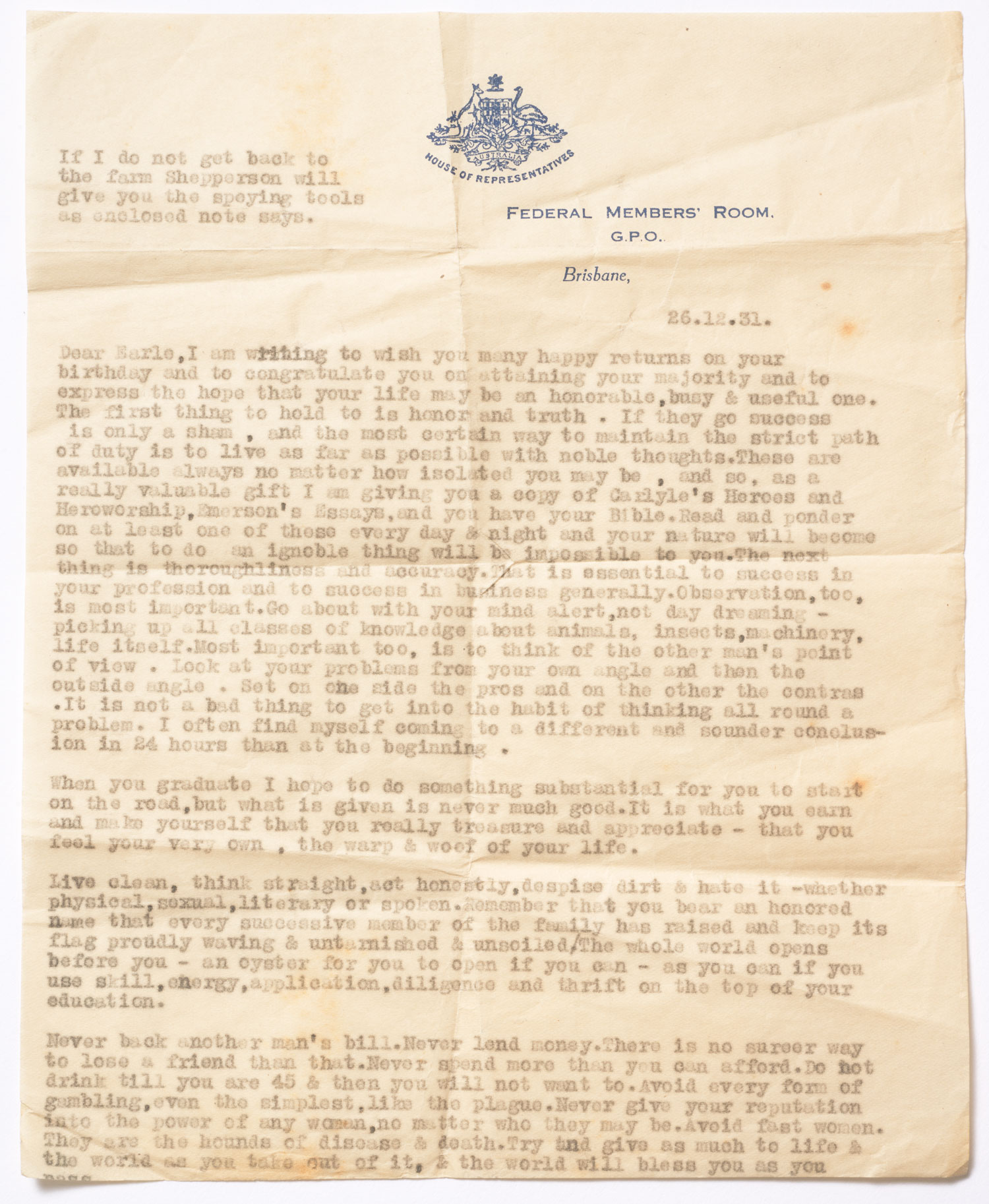
A letter from future prime minister, Earle Page, to his son on his 21st birthday, dated 26 December 1931.
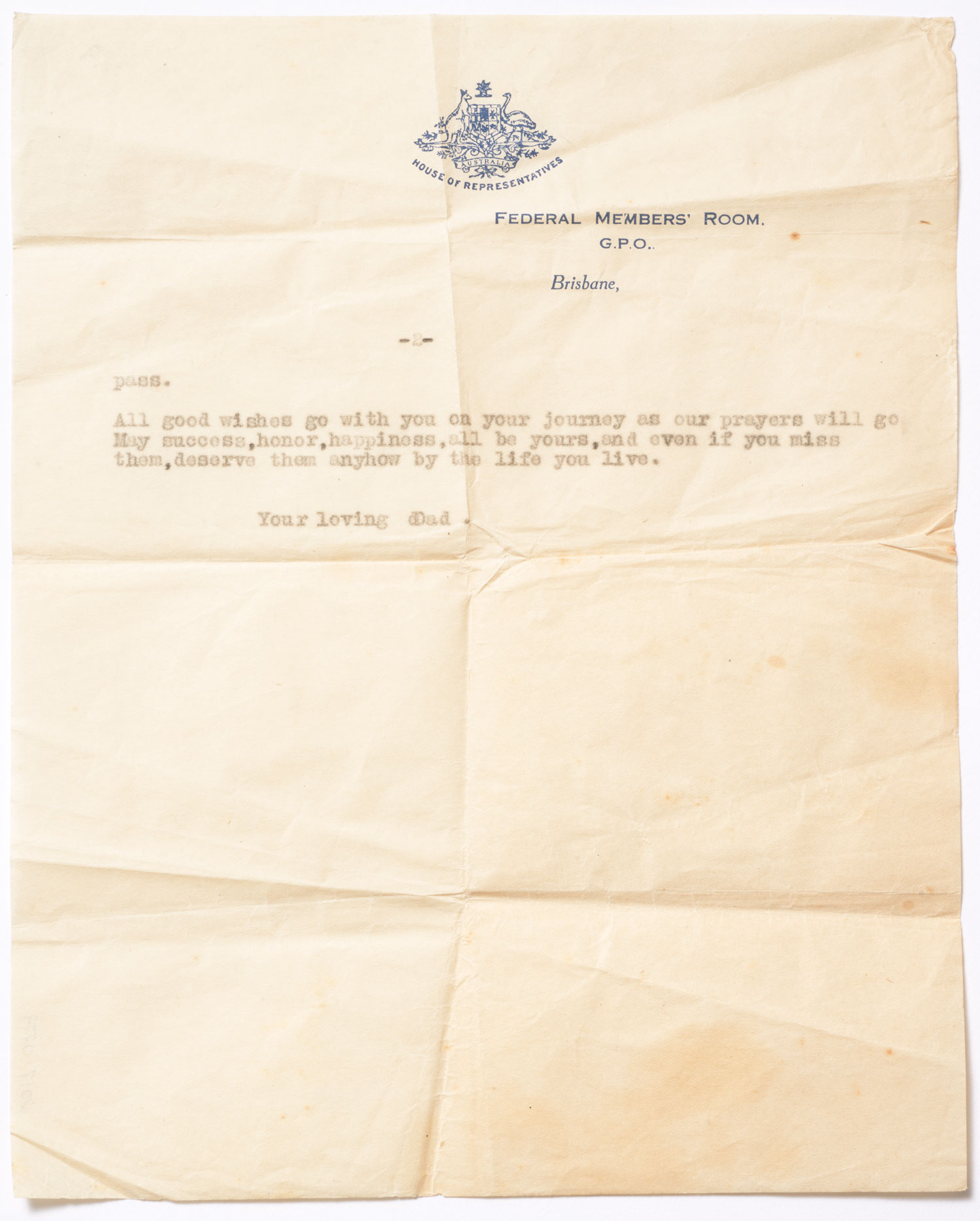
Page's letter includes fatherly advice on a wide range of topics such as problem solving, money, abstaining from alcohol and more.
'Most important is to think about another man's point of view. Look at your problems from your own angle and then the outside angle.' This advice is certainly apt for a politician, and perhaps reflects Page's compassion, which was also demonstrated in his work as a surgeon.
'Never back another man's bill. Never lend money. There is no surer way to lose a friend than that.' Page's financial advice to his son suggests how much he valued self-reliance, especially given his own father had encountered financial difficulties following the depression of the 1890s.
'Do not drink until you're 45 & then you will not want to.' This again perhaps reflects Page's medical training, and belief in self-discipline and responsibility.
Page believed strongly in the importance of 'skill, energy, application, diligence and thrift'.
When Earle Page wrote this letter, he was on the crossbench after having been treasurer in the Bruce government. The member for Cowper since 1919, he was instrumental in forming the federal Country Party in 1920. His family had a history in politics, and he had been an alderman and mayor in South Grafton as well as a medical practitioner before entering federal parliament.
Earle Page Jr had not followed in his father's footsteps. Instead, he was pursuing a career as a veterinarian while living and working on the family farm. He was described by his father as 'a born farmer, a natural bushman and horseman, and a good shot.' At the top left of the letter is an additional note from Page promising that if he could not get back to the farm in person, he would have tools delivered.
Sadly, less than two years after this letter was written, Earle Jr was killed by a lightning strike while working on the family farm at Clarence River with his brother. Deep in grief, his father almost left politics.
Page took a leave of absence for nine months before returning to the leadership of the Country Party. This was an unprecedented break for him, but he returned with his same determination and strong policy views. In 1939, following Prime Minister Joseph Lyon's death, Page became a caretaker prime minister for 19 days.
After Sir Robert Menzies was appointed prime minister in 1939, Page made his unhappiness clear, and this led him to step down from the Country Party leadership. However, he remained in parliament in various ministerial roles, until he retired from cabinet in 1956. He fought his last election in December 1961 and died on 20 December, not knowing he had lost his seat.
What is a caretaker prime minister?
If a prime minister dies in office, a 'caretaker' prime minister is appointed. This caretaker prime minister temporarily acts as prime minister to keep the government running until a new prime minister is officially appointed. Earle Page was the first caretaker prime minister in Australia.
Why was Earle Page prime minister for only 19 days?
Earle Page was leader of the Country Party, which had formed a coalition government alongside the United Australia Party (UAP), led by Lyons. When Lyons died, the UAP was required to appoint a new party leader who would then act as prime minister, while the Country Party leader (Page), would return to being deputy prime minister.
What did Earle Page do before entering parliament?
Earle Page was born in Grafton, New South Wales, to London-born blacksmith and coachbuilder Charles Page, and Tasmanian Mary Johanna Hadden (née Cox). He became a surgeon working at the Royal Prince Alfred Hospital, and then joined a medical practice as a junior partner, before starting his own private hospital. He married Ethel Blunt, a nurse, and had five children. Page became interested in hydroelectricity and politics after touring hydroelectricity projects in New Zealand in 1910.

